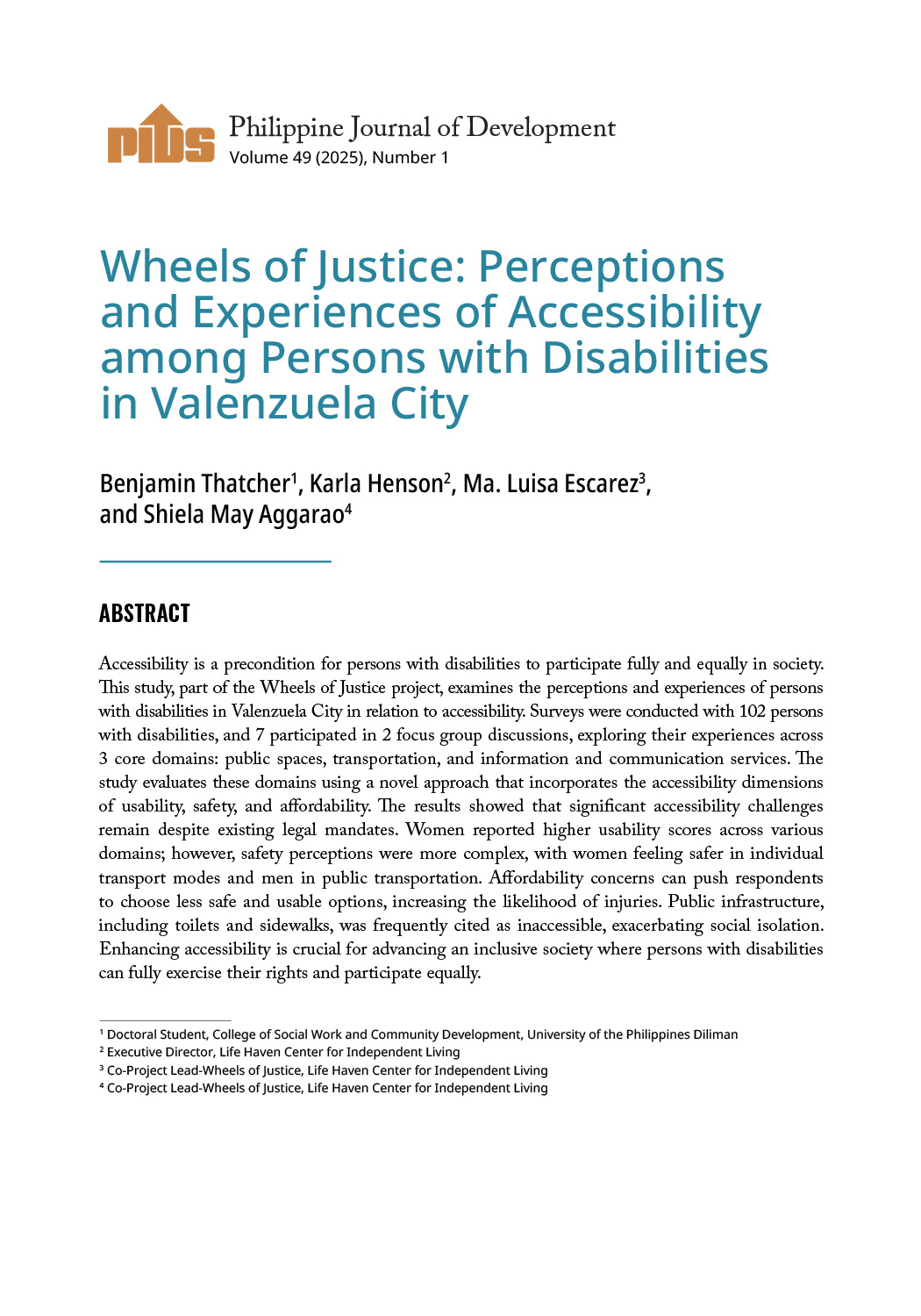The majority of local government units (LGUs) will “become dynastic” by 2040 if the lack of competition in Philippine politics persist, according to the dean of the Ateneo de Manila University (AdMU) School of Government.
In a presentation, AdMU School of Government Dean Ronald U. Mendoza said around 70 percent of LGUs will be ruled by political families in a span of over 20 years.
Mendoza added this is based on the current trend wherein “fat dynasties” have control over LGUs and even, at times, “eat into” the areas controlled by “thin dynasties.”
“The logic is it’s sort of becoming tougher and tougher to go against them,” Mendoza told the BusinessMirror at the sidelines of a forum sponsored by the Philippine Institute for Development Studies (PIDS) and the Australian National University (ANU), in cooperation with the Philippine Competition Commission (PCC).
“And when they’re expanding, they’re taking non-dynastic positions, or those that do not have political dynasties, and also thin dynasties. They eat into the positions where there are only two or three [family members],” he added.
Mendoza said the Philippines is already running out of time in ending the reign of political dynasties through the passage of an anti-dynasty bill.
The Philippines has failed to pass such a bill in the past 30 years, Mendoza said, because it is tantamount to “political suicide for half of Congress.”
While he could not provide the timetable for ending political dynasties in the country, this must be addressed now so new blood and a new brand of leadership can take over the government.
“Running out of time happens in the context of the sustained increase in political dynasties. If we have a rising middle class and if, hopefully, they are engaging, and we are able to reduce poverty more aggressively, poverty and inequality, then maybe these produce a counterweight,” Mendoza said.
Addressing fat dynasties mean improving income and inequality since, Mendoza added, political dynasties are common in poor provinces, such as in the case of the 22 Ampatuans, who hold elected positions in Mindanao, and the Ecleo family, who holds nine positions in the Dinagat islands.
Mendoza said in areas where incomes are higher, such as in rising and established urban centers, candidates who do not belong to any political family sometimes get elected. These were observed in the case of governors Grace Padaca of Isabela Province and Ed Panlilio in Pampanga. However, the lack of support for them after they get elected into office eventually cost them the succeeding elections.
Apart from higher incomes, Mendoza said breaking political dynasties means bringing down the cost of running for public office.
The high cost of running for office serves as a disincentive for capable Filipinos to seek a public post.
Mendoza said running for office in the Philippines starts in the hundreds of millions for certain local posts to the billions for national positions. The high cost of running for office also strengthens the hold of corruption in the Philippine local and national governments.
“If you have stronger parties, if you are able to create a younger set of leaders, much more innovative, much more competitive; if the supply side is addressed, and then there is a rising middle class, there will emerge youth leaders who can stay and not go abroad, who can eventually run for office. This is what we want to happen. There were a lot of youth leaders in the 1960s, but why don’t we see that now? No one is given the opportunity to rise up and be the alternative,” Mendoza added.
In a 2015 Policy Note, PIDS senior research fellow Jose Ramon Albert and Mendoza said the 10 poorest provinces had poverty incidence of 43.49 percent to 67.31 percent and had an incidence of dynasties in political leadership of as low as 51.43 percent to as high as 59.47 percent.
In 2012, the poorest province was Lanao del Sur, which had a poverty incidence of 67.31 percent and 59.47-percent incidence of dynasties in political leadership.
The second-poorest province was Eastern Samar with a poverty incidence of 55.43 percent and a 54.17-percent incidence of political dynasties.
The least poor of the 10 poorest provinces were Northern Samar and Western Samar, which had a poverty include of 43.5 percent and 43.49 percent and a 52.61-percent and 51.43-percent incidence of political dynasties, respectively.
Apart from having a link to poverty incidence, political dynasties weaken checks and balances in the government and the political system. The authors also said political dynasties “perpetuate personality-based politics” that focus on a candidate’s name rather than his or her credentials.
In a presentation, AdMU School of Government Dean Ronald U. Mendoza said around 70 percent of LGUs will be ruled by political families in a span of over 20 years.
Mendoza added this is based on the current trend wherein “fat dynasties” have control over LGUs and even, at times, “eat into” the areas controlled by “thin dynasties.”
“The logic is it’s sort of becoming tougher and tougher to go against them,” Mendoza told the BusinessMirror at the sidelines of a forum sponsored by the Philippine Institute for Development Studies (PIDS) and the Australian National University (ANU), in cooperation with the Philippine Competition Commission (PCC).
“And when they’re expanding, they’re taking non-dynastic positions, or those that do not have political dynasties, and also thin dynasties. They eat into the positions where there are only two or three [family members],” he added.
Mendoza said the Philippines is already running out of time in ending the reign of political dynasties through the passage of an anti-dynasty bill.
The Philippines has failed to pass such a bill in the past 30 years, Mendoza said, because it is tantamount to “political suicide for half of Congress.”
While he could not provide the timetable for ending political dynasties in the country, this must be addressed now so new blood and a new brand of leadership can take over the government.
“Running out of time happens in the context of the sustained increase in political dynasties. If we have a rising middle class and if, hopefully, they are engaging, and we are able to reduce poverty more aggressively, poverty and inequality, then maybe these produce a counterweight,” Mendoza said.
Addressing fat dynasties mean improving income and inequality since, Mendoza added, political dynasties are common in poor provinces, such as in the case of the 22 Ampatuans, who hold elected positions in Mindanao, and the Ecleo family, who holds nine positions in the Dinagat islands.
Mendoza said in areas where incomes are higher, such as in rising and established urban centers, candidates who do not belong to any political family sometimes get elected. These were observed in the case of governors Grace Padaca of Isabela Province and Ed Panlilio in Pampanga. However, the lack of support for them after they get elected into office eventually cost them the succeeding elections.
Apart from higher incomes, Mendoza said breaking political dynasties means bringing down the cost of running for public office.
The high cost of running for office serves as a disincentive for capable Filipinos to seek a public post.
Mendoza said running for office in the Philippines starts in the hundreds of millions for certain local posts to the billions for national positions. The high cost of running for office also strengthens the hold of corruption in the Philippine local and national governments.
“If you have stronger parties, if you are able to create a younger set of leaders, much more innovative, much more competitive; if the supply side is addressed, and then there is a rising middle class, there will emerge youth leaders who can stay and not go abroad, who can eventually run for office. This is what we want to happen. There were a lot of youth leaders in the 1960s, but why don’t we see that now? No one is given the opportunity to rise up and be the alternative,” Mendoza added.
In a 2015 Policy Note, PIDS senior research fellow Jose Ramon Albert and Mendoza said the 10 poorest provinces had poverty incidence of 43.49 percent to 67.31 percent and had an incidence of dynasties in political leadership of as low as 51.43 percent to as high as 59.47 percent.
In 2012, the poorest province was Lanao del Sur, which had a poverty incidence of 67.31 percent and 59.47-percent incidence of dynasties in political leadership.
The second-poorest province was Eastern Samar with a poverty incidence of 55.43 percent and a 54.17-percent incidence of political dynasties.
The least poor of the 10 poorest provinces were Northern Samar and Western Samar, which had a poverty include of 43.5 percent and 43.49 percent and a 52.61-percent and 51.43-percent incidence of political dynasties, respectively.
Apart from having a link to poverty incidence, political dynasties weaken checks and balances in the government and the political system. The authors also said political dynasties “perpetuate personality-based politics” that focus on a candidate’s name rather than his or her credentials.












